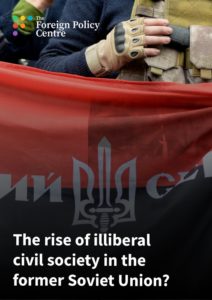 Viktor Orban and his nationalist Fidesz party have weakened democratic protections since coming to power in 2010 and now effectively control all branches of government, while silencing critical media, TIME reports. In response, E.U. lawmakers voted on Sept. 12 to censure Hungary for posing a “systemic threat” to democracy, paving the way for sanctions against a member state.
Viktor Orban and his nationalist Fidesz party have weakened democratic protections since coming to power in 2010 and now effectively control all branches of government, while silencing critical media, TIME reports. In response, E.U. lawmakers voted on Sept. 12 to censure Hungary for posing a “systemic threat” to democracy, paving the way for sanctions against a member state.
Bulgaria will support Hungary in its standoff with the European Union, a Bulgarian deputy prime minister said on Wednesday, adding that the countries of eastern Europe had to stand together in their dealings with Brussels, Reuters reports.
 But which way will Bulgaria eventually go? Boyko Vassilev asks in Transitions Online:
But which way will Bulgaria eventually go? Boyko Vassilev asks in Transitions Online:
Prime Minister Boyko Borissov’s complicated government currently has it both ways. The nationalist coalition partner, the United Patriots, together with some vocal parliamentary deputies of Borissov’s GERB party, support Orban. Yet many other GERB members and voters are on Merkel’s side. So far, Sofia is gaining the benefits of playing on the Brussels side of the field: the EU can reward the Bulgarian authorities by admitting the country to the Schengen visa-travel zone, or by turning a half-blind eye to some domestic irregularities.
Two constituencies in Central Europe are essential to countering authoritarian tendencies in the region—and preventing centrist voters from being pushed toward the anti-EU fringe, argues Tomáš Valášek, Director of Carnegie Europe:
 The first are the “reasonable” social conservatives, mostly Christian Democrats. They feel stranded in an EU whose main political divide increasingly pits anti-modern arch-conservativism against the 1968 generation of West European liberals. The latter rightly feel that their value system is under attack. But the more that West Europeans respond by defining modernity in narrow and exclusive terms—as an ironclad commitment to an expansive set of rights that their own societies would not have signed up a decade or two ago—the more they push centrist voters in the conservative corners of Central Europe into the arms of the anti-EU fringe…..
The first are the “reasonable” social conservatives, mostly Christian Democrats. They feel stranded in an EU whose main political divide increasingly pits anti-modern arch-conservativism against the 1968 generation of West European liberals. The latter rightly feel that their value system is under attack. But the more that West Europeans respond by defining modernity in narrow and exclusive terms—as an ironclad commitment to an expansive set of rights that their own societies would not have signed up a decade or two ago—the more they push centrist voters in the conservative corners of Central Europe into the arms of the anti-EU fringe….. - The second Central European constituency to have broken from the majority on the Hungary vote consists of a cross-party group of MEPs who don’t buy Viktor Orbán’s politics but identify with his opposition to mandatory quotas for asylum seekers. No, this does not automatically make them “euroskeptics.” MEPs from Slovakia’s liberal parties—for example, SaS and NOVA—are anti-authoritarian and pro-EU but oppose mandatory quotas on merit and resent the way quotas came about (that is, by a qualified majority vote).
“One can reasonably ask why asylum quotas matter more than democracy and the rule of law,” Valášek adds. “The explanation—not the excuse—is that the migration debate touched a raw nerve east of the Elbe, for reasons that Ivan Krastev [a contributor to the National Endowment for Democracy’s Journal of Democracy] lays out in a recent interview with the Erste Stiftung. Migration has become an all-defining issue that makes sensible public debate in Central Europe on other EU matters, including Article 7, difficult to impossible.”







